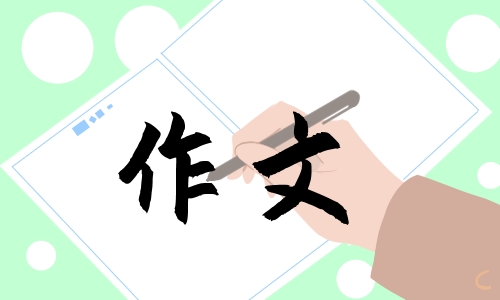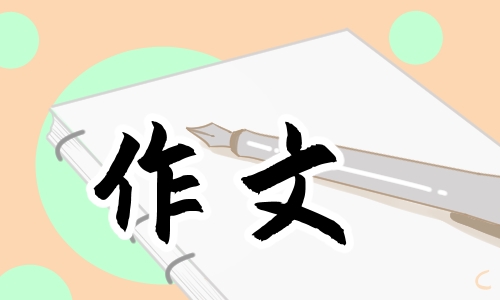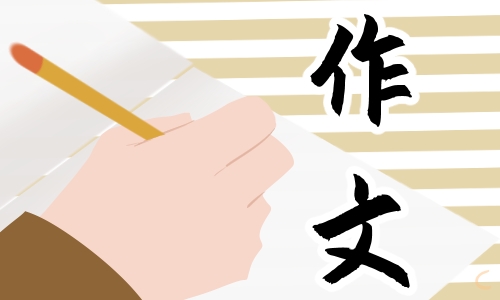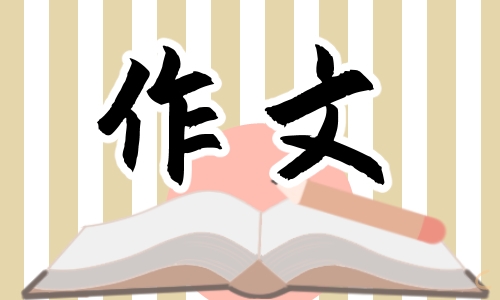英语期末考试将近,同学们的复习工作进行得怎样了?不妨一起来做一份六年级英语期末试卷吧,以下是小编准备的一些六年级上册英语期末试卷及答案,仅供参考。

六年级上册英语期末试卷
听力部分(20分)每小题均读两遍。
一、听音,完成句子。(10分)
1.Why is the snake out of the box?
2.There is a picture book in this photo. I photo books.
3.Do you like reading books now? Yes, .
4.There are many Chinese restaurants in this city.
I like eating Chinese .
5.Do you want to visit the UN in New York?
6.Do you want to go ?
7.I don’t he can come here so early.
8.Pandas are very fat and kind. They like .
9.All the people all over the world want to bring to the world.
10.Look at the library .It says,“Don’t talk in the library.”
二、听音排序。根据你听到的先后顺序,给下列句子标上序号。(10分)
( )When is this Festival?
( ) New York is in the east of America.
( ) What’s your favourite sport?
( )Pleased to meet you.
( )I’ve got some stamps from China.
( )I don’t believe it.
( )Do you want to go to Guilin?
( )Tell us more about the school,please.
( )There’s Chinese dancing there.
( )There’re four stations in the picture. m
笔试部分(100分)
一、英汉短语翻译。(10分)
1.联合国大厦 2. ten to five
3.一天十二小时 4. the Summer Palace
5.图书馆规则 6. believe it or not
7.stand in line 8.全世界
9.端午节 10.sleep in the winter
二、根据句意和汉语提示,完成句子。(10分)
1.There are some old (建筑) in the city.
2.Please (快点). It’s ten to six.
3.Pandas love (竹子).
4.This is my email (地址).
5.He (总是) ride his bike to school.
6.I’ve got some chopsticks, but they are (困难)
7.That (听起来) nice.
8.Do you often (清理) your room?
9.There is a big (广场) in Beijing.
10.Now you can have (另一个) Chinese stamp.
三、根据上下文的意思,用所给单词的正确形式填空。(10分)
1.I like (collect) stamps.
2.I have two (knife).
3.Flying kites and reading books are my (hobby).
4.There’s Chinese (dance).
5.Lingling (say) she will come soon.
6. (please) to meet you!
7.They are from 192 (country).
8.I’m (send) an email to my family.
9.Let (we) go to the park.
10.There (be) some orange juice in the bottle.
四、选择填空。(10分)
( )1.He can dance he can’t sing.
A. and B. but C. so
( )2.What interesting film it is!
A. a B. an C. the
( )3.Daming can play table tennis ,and he can play flute.
A. the ,the B. the, / C. /, the
( )4.I’m Linda. Please my pen friend.
A. am B. is C. be
( )5.I don’t like pears ,so I eat them.
A. never B. sometimes C. often
( )6.Do you want inside?
A. go B. to go C. goes
( )7.Does he with toys?
A. likes play B. like playing C. like play
( )8. —Let’s _____ to see films. —Good idea!
A. go B. goes C. going
( )9.Father Christmas gives presents the children.
A. at B. for C. to
( )10.A baby can sleep twenty hours a day.
A. in B. for C. to
五、选择配伍(10分)
从Ⅱ栏中找出Ⅰ栏每个句子恰当的`答语,并将答案标号写在题前括号内。
Ⅰ Ⅱ
( )1.How big is London? A.Yes,I d0.
( )2.Where are you from? B.Not very often.
( )3.Is there a letter for me? C.You’re welcome.
( )4.Do you want to Chinatown? D.No,I haven’t.
( )5.Have you got any sandwich? E.I’m from Canada.
( )6.Can she speak French? F.It’s got eight million people.
( )7.Thank you so much. G.Yes,there is.
( )8.Pandas eat meat,believe it or not? H.No,she can’t.
( )9.Do you often clean your desk? I.It’s in England.
( )10.Where is the London Eye? J.I don’t believe it.
六、连词成句,注意大小写和标点符号。(10分)
1. about / book/ got /you / have / a / America ( ? )
2. bedroom / computer / in / is / there / a / my ( . )
3. to / go / do / to / you / want / Qingdao ( ?)
4. his / is / looking / hobby / stars /at ( . )
5. be / your / can / friend /pen / who ( ? )
七、补全对话。从方框中选出句子完成对话,并将答案标号写在相应空白处。(10分)
A.Tuantuan and Yuanyuan. B.Of course,I can.
C.They were sent to Taiwan. D.Good morning.
E.Did you finish your homework?
A:__________________Tom.
B:Good morning,Mr. Green.
A:__________________
B:Yes,I did.
A:OK.Can you tell me more about pandas?
B:___________________
A:Good! What place were the two pandas sent to last month?
B:________________
A:What are their names?
B:___________________
A:They love bamboo very much.
八、阅读理解。(20分)
A:先阅读下面短文,然后根据短文内容从每小题A、B、C三个选项中,选出一个能回答所提问题的最佳答案,并将答案标号写在题前括号内。
My name is Alice.I’m Canada.I have got four pen friends from China.I know something about China from them.Chinese people like using chopsticks and eating dumplings.I think chopsticks are difficult for me.I often use knife and fork to eat.My favourite food is bread and cheese.Yesterday I got postcard from my pen friend.One is a picture of the Summer Palace,the other is a picture of the West Lake.I like them very much.
( )1.Where is Alice from?
A.America. B.England. C.Canada.
( )2.How many Chinese pen friends has Alice got?
A.Three. B.Four. C.Six.
( )3.What does Alice use to eat?
A.Chopsticks. B.A fork. C.Hands.
( )4.Who did give the postcard to Alice?
A.Salesman. B.Fireman. C.Her pen friends.
( )5.What do Chinese people like to eat?
A.Cheese. B.Dumplings. C.Bread.
B:阅读短文,判断正( T )误( F )。
Hello! My name is Lili. I’m Chinese . I’m twelve years old. I’m in Class 1, Grade 6 .I’ve got a good friend. Her name is Amy .She’s eleven .She is in Class 1, too. I like collecting dolls and drawing, but she likes playing football. Miss Wang is our English teacher. Miss Li is our Chinese teacher .We are in Xinhua primary school.
( ) 1.Lili is a Chinese girl .
( ) 2. Her good friend is a boy.
( ) 3. They are in the same class of the same school.
( ) 4. Miss Li is their English teacher.
( ) 5. Lili and Amy both like playing football.
九、根据实际情况回答问题。(10分)
1.What’s your hobby?
2.How many countries are there in the UN?
3.When is Christmas Day?
4.What’s your pen friend’ s English name?
5.Where is Qingdao?
六年级上册英语期末试卷
参考答案:听力部分(20分)
一、听音,完成句子。(10分)每小题一分。
1.Why is the snake coming out of the box?
2.There is a picture book in this photo. I love photo books.
3.Do you like reading books now? Yes, of course .
4.There are many Chinese restaurants in this city.
I like eating Chinese fast food .
5.Do you want to visit the UN building in New York?
6.Do you want to go inside ?
7.I don’t believe he can come here so early.
8.Pandas are very fat and kind. They like bamboo .
9.All the people all over the world want to bring peace to the world.
10.Look at the library rules .It says,“Don’t talk in the library.”
二、听音排序。根据你听到的先后顺序,给下列句子标上序号。(10分)
每小题一分。
1.Do you want to go to Guilin?
2.When is this Festival?
3.There’s Chinese dancing there.
4.Tell us more about the school,please.
5.Pleased to meet you.
6.What’s your favourite sport?
7.I don’t believe it.
8.I’ve got some stamps from China.
9.New York is in the east of America.
10.There’re four stations in the picture.
笔试部分(100分)
一.英汉短语翻译。(10分)每小题一分。
1.the UN building 2.四点五十 3.twelve hours a day 4.颐和园
5.library rules 6.信不信由你 7.站成一排 8.all over the world
9. Dragon Boat Festival 10.冬眠
二、根据句意和汉语提示,完成句子。(10分)每空一分。
1.buildings 2. hurry 3. bamboo 4. address 5.always 6.difficult
7. sounds 8. clean 9.square 10. another
三、根据上下文的意思,用所给单词的正确形式填空。(10分)
每空一分。
1.collecting 2. knives 3. hobbies 4. dancing 5. says
6. Pleased 7. countries 8. sending 9. us 10. is
四、选择填空。(10分)每小题一分。
BBCCA BBACA
五、选择配伍(10分)每小题一分。
FEGAD HCJBI
六、连词成句,注意大小写和标点符号。(10分)
每小题2分。
1. Have you got a book about America?
2. There is a computer in my bedroom.
3. Do you want to go to Qingdao?
4. Looking at stars is his hobby. / His hobby is looking at stars.
5. Who can be your pen friend?
七、补全对话。从方框中选出句子完成对话,并将答案标号写在相应空白处。(10分) 每空2分。
DEBCA
八、阅读理解。(20分)每小题2分。
CBBCB TFTFF
九、根据实际情况回答问题。(10分)每小题2分。
1.My hobby is reading /collecting stamps /riding ……(一定是动名词)
2. 191 3. December 25 4. Sam / Amy / Tom ……(一定是外国名字)
5. It’s in the east of China.
六年级上册英语知识点
1. be glad/happy to do sth 高兴去做某事
She is happy to clean theblackboard with me.
be pleased to do sth高兴做某事
She was pleased to helpthe old man yesterday.
be pleased with sth 对某事感到高兴/满意
The teacher was pleasedwith my answer.
2.be interested in sth/doing sth 对某事感兴趣/对做某事感兴趣
She is interested inswimming in the river.
My btother is interestedin Chinese.
3. be/get ready for/to do sth
be ready for 为某事做好了准备
We are ready for the exam.
Be ready to do sth 为做某事做好了准备
We are ready to have a birthday party for her.
get ready for sth为某事在做准备
We are getting ready for the exam.
4. be surprised to do sth 对做某事感到惊奇
be surprised at sth 对某事感到惊奇
This is nothing to be surprised at.
I'd be surprised to see him on such an occasion.
5. be worth doing sth 值得做某事(worth 后接动词-ing形式,常考)
It was too remote to be worth thinking about.
6. 开始去做某事begin to do sth begin/start to do/doing sth
When do children begin to go to school?
7. can/be able to afford (to buy) sth 有能力负担(购买)……
At this rate we won't be able to afford a holiday.
8. can/may/must do sth could/would/should/might do sth
We may come at another time.
9. can't wait todo sth 迫不急待地去做某事
I can’t wait to hear the news.
10. decide to do sth 决定去做某事
make up one's mind to do sth 下决心去做某事(常考)
make a decision to do sth 对做某事作出决定
What do they decide to do?
I have made up my mind to go with him
六年级上册英语教学计划
一.学情分析
六年级学生已经接触了三年英语,有一定的英语基础。他们活泼好动,对新事物有着强烈的好奇心,探索知识的欲望很强烈,并且有着很强的表现欲。但六年级的学生对英语学习兴趣整体有所下降,两极分化比较严重。所以本学期我将面向全体学生,以学生的发展为宗旨,因材施教,分层教学,始终把激发学生的学习兴趣放在首位,引导学生端正学习态度,掌握良好的学习方法,培养学生良好的学习习惯。
二.教材分析
本教材的设计体现了"以人为本"的教育思想,形式多样活泼,很符合该年龄阶段的儿童。教材以话题为纲,以交际功能和语言结构为主线,逐步引导学生运用英语完成有实际意义的语言任务。体现了交际教学思想,注重学生语言应用能力的培养。在整体构思、内容安排、活动设计和教学方法选用上都紧密联系学生的生活实际、贯彻了语言的交际功能和语言应用的基本原则。这册课本的话题包括means of transportation & traffic rules; locations & directions; spare time activities; hobbies & daily routine; jobs; water cycle & plants。
三.学期教学目标
根据小学生的心理和生理特征以及发展需求,小学阶段的英语课程的目的是激发学生学习英语的兴趣,培养他们英语学习的积极态度,使他们建立初步的英语学习的自信心;培养学生一定的语感和良好语音、语调基础。六年级的学生已经有一定的英语基础,本学年应达到以下目标:
1、能按四会、三会的要求掌握所学单词。
2、能按四会要求掌握所学句型。
3、能使用日常交际用语,活用四会句型,进行简单的交流,做到大胆开口,发音正确。
4、能在图片、手势、情境等非语言提示的帮助下,听懂清晰的话语和录音。
5、进一步养成良好的书写习惯。
6、进一步养成听英语、读英语和说英语的良好习惯。
7、能运用相关的语言知识和技能,完成某项任务。
8、能演唱已学过的英语歌曲,诵读已学过的歌谣。
四.教材重点和难点
1、能按四会、三会的要求掌握所学单词。
2、能按四会要求掌握所学句型。
3、能使用日常交际用语,活用四会句型,进行简单的交流,做到大胆开口,发音正确。
4、能在图片、手势、情境等非语言提示的帮助下,听懂清晰的话语和录音。
五.单元教学目标
Unit1 How do you go there?
1、能力目标
(1) 能够正确询问并回答乘坐某种交通工具去某地, 如: How do you go to school? Usually I go to school by bike. Sometimes I go on foot. How can I get to Zhongshan Park? You can go by the No. 15 bus.
(2)能够描述人们日常出行的方式,并简单陈述理由, 如: Usually I go to school by subway, because it's fast.
(3)能够辨认一些常见的交通标志,了解并遵守交通规则,特别是要学会看交通指示灯安全地过去马路。
(4)能够了解一同国家交通规则的异同。
2、知识目标
(1)掌握A,B部分let's learn, let's talk中的四会短语和句子。
(2)能够听,说,认读A, B部分的let's learn三会单词和let's talk, let's read中出现的三会句型。
(3)能够理解并会根据指令操作let's play, let's chant, group work等部分的内容。
(4)了解音标/i:/, /i/, /p/, /b/, /t/, /d/的音和形,能够区分音标/i:/和/i/ 发音不同。
(5)能够了解Story time, Good to know, Task time等部分的内容。
3、情感、策略、文化等有关目标
(1)通过了解交通规则,认识交通标志,学会在生活中自觉遵守交通规则。
(2)培养学生乐于助人的情感,让他们具有一定的团结合作、竞争进取的品格素质。
Unit 2 Where is the science museum?
1、能力目标
(1) 简单描述城市、城镇或区内公共设施的大致位置,如:"Where is the cinema, please? It's next to the hospital."等。
(2)能够询问路线并简单回答,如:Where is the post office? It's east of the cinema. Turn left at the cinema, then go straight. It's on the left.
(3)能够了解地图的基本标识,并能用东、西、南、北简单表示行政区划的位置。
(4)能够听懂、会唱歌"Where are you going?"
2、知识目标
(1)能够掌握A、B部分Let's learn和Let's talk中的四会单词和句子。
(2)能够听、说、认读A、B部分Let's learn的三会单词和Let's talk,Let's read.中的三中的三会句子。
(3)能够理解、会唱Let's chant, Let's sing等部分的内容。
(4)能够了解Pronunciation中音标/e/, /a/, /k/, /g/, /f/, /v/, /s/, /z/的音与形并能正确读了例词。
(5)能够了解Story time, Good to know, Task time等部分的内容。
3、情感、策略、文化等有关目标
(1)情感态度:培养学生团结友爱、乐于助人的良好品质。使学生愿意在小组活动中积极与他人合作,互相帮助,共同完成学习任务。
(2) 学习策略:引导学生在学习过程中注重合作学习,利用课本中设计的Pair work, Group work, Let's play以及Task time部分,培养学生合作学习的意识。
(3)文化目标:简单了解国外地图的主要标识。
Unit 3 What are you going to do?
1、能力目标
(1)能够用be going to句型交流行事计划, 如:.What are you going to do this evening? I am going to the cinema.等。
(2)能够用where, when替换句型:What are you going to do? 中的疑问词what提问并回答, 如:Where are you going? I am going to the bookstore. When are you going? I am going at 3 o'clock.等。
(3)能够了解他人的行事计划并进行转述, 如: He /She is going to…等。
2、知识目标
(1)能够掌握A, B 部分let's learn, let's talk中的四会单词和句子。
(2)能够听, 说, 认读A, B 部分let learn, let talk和let read中的三会掌握单词和句子。
(3)能够了解pronunciation部分音标的音和形, 并完成相应练习。
(4)能够理解并会唱let's chant部分的歌谣;能够听懂、会唱歌曲"What are you going to do? "。
(5)了解story time, good to know等部分的内容。
3、情感、策略、文化等有关目标
(1)培养学生合理安排自己学习和生活,能按计划、有条理地做事情的能力;
(2)培养学生具有一定的团结合作竞争进取的优良品格。
Recycle 1
1、能力目标
(1)综合运用1-3单元的主要语言进行有实际意义的交流。
(2)能够根据Let's find out部分的指示语找到地图中的相应位置并写出场所词。
(3)能够运用be going to do句型在Group work中讨论自己的梦想之旅。
(4)能够听懂Listen and match与Listen and choose部分的对话并完成相应的练习。
(5)能够听懂、会唱歌"How can I get to the zoo?"
2、知识目标
(1)能够听、说、认读两篇Let's read的对话,并完成文后的正误判断题。
(2)能够理解并会吟唱Let's chant的歌谣。
(3)能够认读1-3单元Pronunciation部分的音标并能把音标与单词正确连线。
3、情感、策略、文化等有关目标
(1)情感态度:培养学生的团结友爱意识。
(2)学习策略:引导学生独立思考、解决问题。
Unit 4 I have a pen pal
1、能力目标
(1)能够询问和简单描述业余爱好,如:What's your hobby? I like collecting stamps. He likes collecting stamps, too.
(2)能够用一般疑问句形式询问他人的住处,工作等情况并作答,如:Does he live in the city? Yes, he does. Does he teach English? No, he doesn't. He teaches art.
(3)能够听懂、会唱歌曲"My pen pal"。
2、知识目标
(1)能够掌握A、B部分Let's learn,Let's talk中的四会单词和四会句子。
(2)能够听、说、认读A、B部分Let's talk,Let's read中的白体句子。
(3)能够认读Pronunciation部分的音标:/з:/, /э/, /∫/, /З/, /l/, /r/并能读出例词。
(4)能够理解Let's chant部分的内容。
(5)能够了解Story time, Good to know, Task time等部分的内容。
3、情感、策略、文化等有关目标:
(1)情感态度:鼓励学生发展广泛的兴趣与爱好,培养学生乐于与人交往的性格。
(2)学习策略:积极运用所学语言进行表达与交流,加强合作,共同完成学习任务。
(3)文化目标:了解一些英语书信的基本知识。
Unit 5 What does she do?
1、能力目标
(1)能够简单介绍人物职业, 如:She is a cleaner.
(2)能够运用句型"What does your mother do? Where does she work? How does she go to work?"等询问他人的工作情况,并能给出相应回答。
2、知识目标
(1)能够掌握A,B部分let's learn , let's talk中的四会单词和句子。
(2)能够听,说,认读A,B部分let's talk, let's learn中的白体句子。
(3)了解元音/u:/, /u/和辅音/ w/, /j/, /h/等的发音并读出例词。
(4)能够了解Story time, Good to know, Task time等部分的内容。
3、情感、策略、文化等有关目标
(1)热爱生活,尊重他人的劳动。
(2)能够与他人合作,共同完成学习任务。
(3)了解英语中职业名称对于不同性别的差异。
Unit 6 The story of rain
1、能力目标
(1)能够简单讲述水循环的过程,如:Where does the rain come from? It comes from the clouds.
(2)能够简单叙述植物种植的过程,如:Put the seeds in the soil. Water it every day.
(3)会唱歌曲"Little Water Drop"。
2、知识目标
(1)能够听、说、读、写A、B部分Let's learn中的四会单词和Let's talk中的四会句子。
(2)能够 认读本单元的音标,并能读出例词。
(3)能够听、说、认读Let's learn, Let's talk, Let's read等部分的白体单词和句子。
(4)了解Story time, Good to know, Task time等部分的内容。
3、情感、策略、文化等有关目标
(1)情感态度:培养学生热爱大自然的美好情感,增强环境保护意识。
(2)了解水结成冰的相关知识。
Recycle 2
1、知识目标
(1)能听、说、读A、B部分中的会话。
(2)能听、说、读、写A、B部分Let's learn、Let's talk中的四会单词和重点句型。
(3)能理解Let's read中的内容,并能做相应的问答。
(4)能够运用计量单位:kg 和cm
(5)了解Good to know和story time中的内容。
2、能力目标
(1)能够相互问答身高、体重、大小、长短,如How tall are you? I'm …cm tall. How heavy are you? I'm … kg.
(2)能通过比较词进行事物或身体的比较或描述,如… is taller than ….
(3)能听懂会唱歌曲 《 My Pets 》。
(4)能根据所给数据,对两样事物进行比较。
3、情感、策略、文化目标
(1)培养学生在观察和测量中联系英语的习惯。
(2)了解计量单位的完整和缩写的写法及换算方法。
六.主要措施
1、以活动为课堂教学的主要形式,设计丰富多彩的教学活动,让学生在乐中学、学中用,从而保证学生英语学习的可持续性发展。
2、在教学过程中,采用情景教学法,让学生身临其境,积极主动地参与到课堂教学中去,调动学生的非智力因素,提高学生实际运用语言的能力。
3、通过听、说、读、写、唱、游、演、画、做等形式,进行大量的语言操练和练习。
4、培养学生拼读音标的能力,确保学生自主学习的质量。
5、设计全面、高效的课外作业,培养学生良好的书写习惯,做到整洁、规范、正确地书写。
6、活用教材,根据学生的实际情况,将每单元各个板块进行整合,重组,降低难度。
七.教学进度及课时安排(略)
六年级上册英语期末复习计划
一.学情分析:
我们六(1)班和六(3)共113人。两个班部分学生基础比较好,能准确掌握所学的知识点。但也很多学生由于基础较差,单词量不多,没有掌握做题技巧,主要在听和写两方面较弱。针对学生不足的方面,进行专项,有效的复习。
二、复习目标:
1、认读四会单词,在学生原有的基础上增加一定的单词量,并且按照要求背诵四会单词。能完成四会单词默写,分类的练习。
2、认读教材中出现的一些词组的用法。能完成英汉互译和连线的习题。
3、掌握教材中出现的句型,和一些简单的与教材内容有关的语法知识。能够区分教材中出现的句型,运用翻译补充所学句子。
4、能够认读教材中的短文,能独立完成一些较容易阅读题。
5.能跟每单元的内容,例如:My weekend plan,My penpal,introduce parents’jobs,等相关的 写作练习。
三、复习内容及要点:
1、单词。单词是英语的基础和复习的重点。
1)按词性归类复习单词。有关交通工具,地点,职业,情绪等方面的单词。
2)按词汇表复习单词。每天听写一个单元单词。
2、词组。词组是学习英语的关键,它是复习英语的良好途径,同时又是学习句子的基础。把词组归类,分类掌握。要让学生学会自己组词。
3、句子。句子是学习英语的重点,也是本册教材的重点和难点。
1) 指导学生在语境中复习句子。
2) 根据句子类型 指导学生在比较中复习句子,教给学生适当的语法知识。
3) 让学生能够运用句型进行问答练习。
4、阅读, 写作。根据每单元的话题进行练习。
四、复习方法及原则
1、加强单词的朗读和默写,给学生明确的任务,使他们也能尽自己大能力过好单词关。将词组复习与单词分类复习相联系。在复习过程中,要紧紧抓住教材中的短文,做到精读和导读相结合,在较短时间内起到良好的教学效果。把单词、词组、句子和阅读作为一个有机整体,在复习过程中将它们紧密联系起来,合理安排复习内容,提高学生整体运用知识的能力。。
2、以听说读写为主要途径,让学生多读,在复习中培养学生郎读英语的习惯,在学生多读多说的基础上不断提高听和写的能力。听说读写要有机结合,才能相辅相成。学生基础差,见过的英语习题比较少,要从习题入手,让学生尽可能的多做习题。
3、进行分类专项训练,帮助不同层次的学生获得不同的提高和收获。学生两极分化现象严重,那么对不同层次的学生就要提出不同的要求。对于 成绩较差的学生复习重点应放在单词,句型等基础知识上。
总之,紧张的复习工作已经全面展开,我们要以学生为主体,要求从实际出发,让所有的学生都获得一定的提高和进步,不但在 考试中取得好成绩,也为以后的学习打下坚实的基础。
四、期末复习课时安排:
课时安排 复习内容
12月25,26日 复习Unit1,2,3的重点单词
12月29,30,日 复习Unit1,2,3的重点句子
12月31日,1月4日 复习Unit4,5,6的重点词汇
1月5,6日 复习Unit4,5,6的重点句子
1月7,8日 词汇句型专项练习
1月9日 写作练习
1月12,13日 综合练习
五.复习内容:
1.词汇
地点名词:science museum post office bookstore cinema hospital restaurant supermarket factory
交通工具:on foot bus plane taxi ship subway train
职业:worker postman businessman police officer fishman scientist pilot coach head teacher reporter secretary
情绪:angry afraid sad worried happy excited boring
2.词组:turn left/right go straight slow down traffic lights pay attention to see a film take a trip go to the supermarket visit my grandparents this morning/afternoon/evening play sports climb mountains listening to music watch TV play the pipa draw cartoons do kung fu play football read stories cook Chinese food stuay Chinese do word puzzles go hiking see a doctor do more exercise wear warm clothes take a deep breath count to ten
3.句型:Unit1 Where is the museum shop?
It’s near the door.
How can we get there?
Turn left at the bookstore.
Unit2 How do you come to school?
Usually,I come on foot.
In the USA people on bikes must wear one.
Don’t go at the red light.
I must pay attention to the traffic lights.
Unit3 What are you going to do tomorrow?
I’m going to have an art lesson.
We’re going to draw some pictures in Renmin park.
Where are you going?
We’re going to the cinema.
When are you going?
Unit4 What are Peter’s hobbies?
He likes reading stories.
Does he live in Sydney?
No,he doesn’t.
Does he like doing word puzzles and going hiking?
Yes,he does.
Unit5 What does he do?
He’s a businessman.
Where does he work?
He works at sea.
How does he go to work?
He goes to work by bike.
Unit6 They’re afraid of him.
The cat is angry with them.
What’s wrong?
Your father is ill.
He should see a doctor this morning.
Don’t be sad.
4.动词第三人称单数的三种变化形式,动词加ing的四种变化形式以及相关的练习题。
5.词语,句型转化, 作文写作及综合题的练习。






